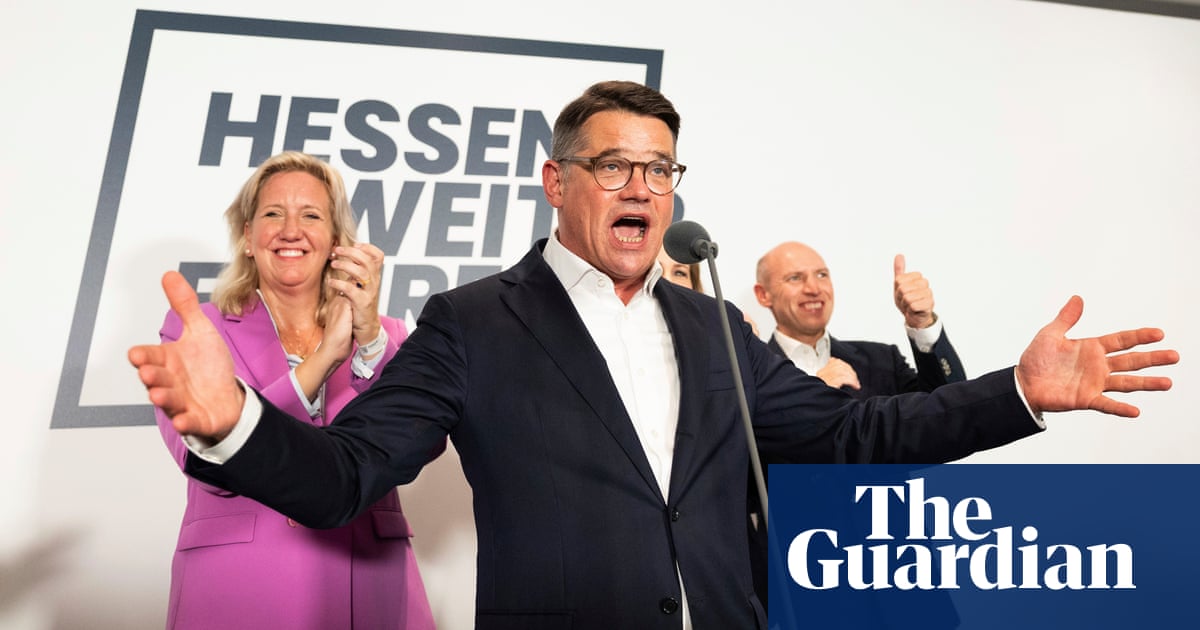Worries about the economy and migration pushed up share for far-right AfD in Hesse and Bavaria, while coalition parties did worse
German chancellor Olaf Scholz’s fractious centre-left coalition has received a sharp rebuke from voters in the key states of Bavaria and Hesse, with economic woes and immigration fears boosting the opposition conservatives and the far right.
At the elections on Sunday the far-right Alternative for Germany (AfD) party burst out of its post-industrial eastern strongholds to score its best ever result in a western state. Polls showed it on course to be the second largest party in Hesse, home to the financial capital Frankfurt.
All three parties in Scholz’s federal coalition – his Social Democrats, the Greens and the pro-business Free Democrats (FDP) – did worse than five years ago in the states, which together account for about a quarter of the German population.



What kind of coalition you are talking about ? Right now every other political party has denied them a possible coalition and will continue to do so. Also the CDU you are talking about is sadly performing very strong in the latest elections, so it’s gonna be probably them again who will reign in germany
Yea that is a bad situation. Belgium did the same thing and there needed to be a coalition of 7! parties to sideline the right. That many parties never see eye to eye and agree on nothing, it basically puts Belgium without a government because nothing gets done. There is a constant fear if 1 party leaves, the majority is gone and the government will fall.
Childish politicians obviously use this as leverage.